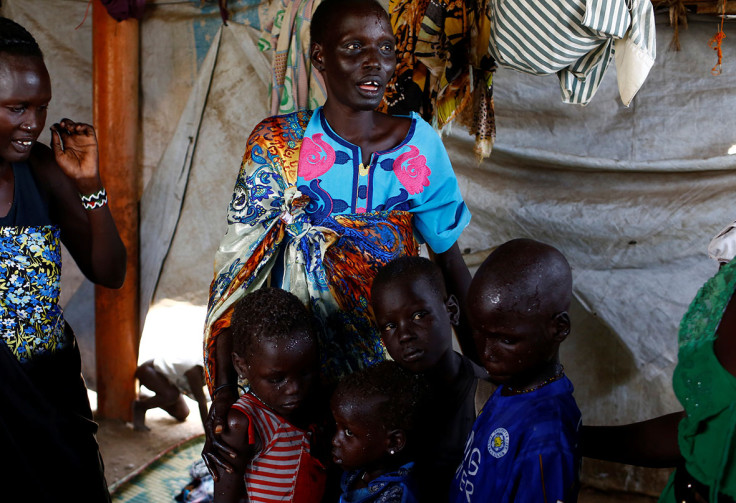EU pledges $85m for famine-hit South Sudan as President Kiir vows more will be done
Hunger spreads in Unity State as war blamed for first famine declared in any part of the world in six years.
The European Commission has announced an emergency aid package of $85m (£68m) after war-town South Sudan declared a man-made famine in parts of the country. At least 100,000 people are facing starvation in Unity State – in the upper Nile region – and millions across the country are affected by food insecurity.
The announcement came one day after the World Food Programme (WFP) told IBTimes UK the country needs $205m ( £164m) to cope until July with the man-made famine. This is the first time that a famine has been declared in any part of the world in six years.
South Sudan's President Salva Kiir vowed his government will do more to help people cope with lack of food.
"The government is aware of the failure of crops last year in the region and so steps are being taken to mitigate the potential famine in that area," Kiir said in a televised speech on 21 February. "Towards this end, the government will increase the supply of basic food commodities in the area with the provision for subsidised prices."
Famine and drought in Africa
Three African nations pushed to brink of famine by drought and catastrophic wars
Half of Somalia's population facing hunger as spectre of devastating 2011 famine resurfaces
Devastating drought pushes Kenya to the brink of famine and violence
The UK government, which has given South Sudan more than £500-million-aid in the last three years, has also pledged more assistance to the country and called on the government to halt the violence and allow humanitarian access.
"The UK is ensuring millions of people in South Sudan get urgently needed food, water and medicine, as well as longer term support," international development secretary Priti Patel said.
"The international community now needs to step up alongside Britain to stop famine spreading and help support stability in South Sudan and the region, which is firmly in all our interests."
Civil war blamed for famine

The South Sudan conflict erupted in 2013 when President Salva Kiir, of the Dinka ethnic group, fired his deputy Riek Machar, who then became a rebel leader, from the Nuer group.
Ethnic-related violence targeting Dinka and Nuer has killed an estimated 50,000 people, amid allegations of crimes against humanitycommitted by both sides, including rape, torture and the use of child soldiers.
At least 1.5m people have fled to other countries. The exodus has been deemed "Africa's worst refugee crisis".
More than 2m are internally displaced as the country is on the verge of a Rwanda-style genocide.
People are fleeing violence leaving their crops to rot in the fields. In addition, the heavy rainy season has made some roads inaccessible hindering food deliverance.
Many fear hunger will deepen as the conflict has spilled into the Equatoria region, considered one of South Sudan's breadbaskets.
IBTimes UK's exclusive interview with Machar:
The UN has now appealed for $1.6 bn (£1.2bn) to provide life-saving assistance and protection to 5.8 million people across the country.
Kiir and Machar have agreed on several peace deals – the last of which was signed in August 2015 – but have failed to control their troops, who have broken every ceasefire since 2014.
Machar fled South Sudan following deadly fighting in the capital Juba in July 2016.
He is currently in South Africa seeking medical treatment, but in an exclusive talk with IBTimes UK said he was ready "to go home".
His wife, Angelina Teny, also a member of SPLM-IO, told IBTimes UK she believes her husband can contribute to achieving peace in the war-torn nation which is on the verge of a Rwanda-style genocide.
© Copyright IBTimes 2025. All rights reserved.






















